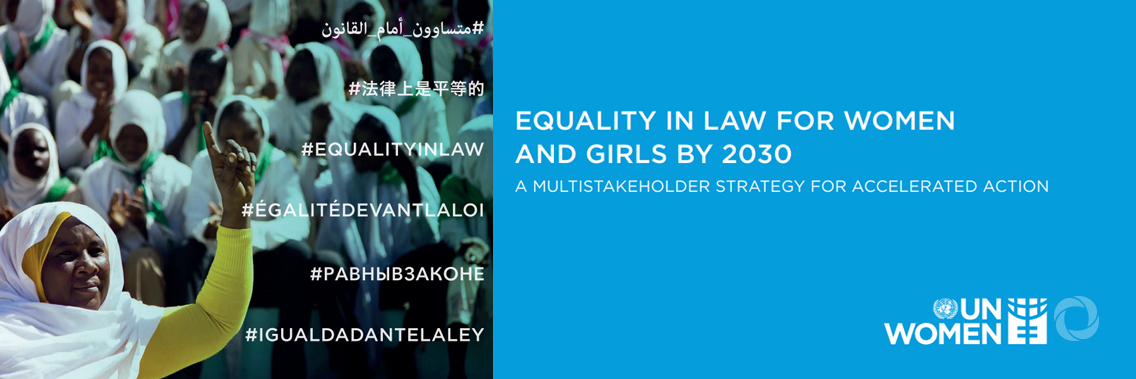Over 2.5 billion women and girls around the world are affected by discriminatory laws—laws that impede gender equality and hold women and girls back. In too many countries, there are unequal standards for women and men, whether it’s for applying for a passport or in the choice of employment, receiving an inheritance and deciding when and whom to marry.
A high-level event on the margins of the 63rd session of the UN Commission on the Status of Women on 20 March, launched the “Equality in Law for Women and Girls by 2030: A Multistakeholder Strategy for Accelerated Action”. The strategy, developed by UN Women, the African Union, Commonwealth, Inter-Parliamentary Union, Organisation Internationale de la Francophonie, Secretaría General Ibero-Americana, and many other UN and NGO partners, seeks to fast-track the repeal or revision of discriminatory laws in 100 countries by 2023.
In her opening remarks, UN Women Executive Director Phumzile Mlambo Ngcuka highlighted how laws are not abstract concepts, they impact every facet of women’s lives. According to The “World Bank’s Women, Business and the Law Index” (2019), only six countries around the world give women and men equal legal rights in specific areas of economic empowerment.
“We have made a lot of progress since governments adopted the Beijing Declaration and Platform for Action (1995),” she said, however, “there are 37 countries where women don’t have the same rights as men when it comes to applying for a passport… 40 percent of countries have at least one constraint on women’s property rights,” she added.
Focusing on six thematic areas— Comprehensive reforms, economic empowerment, minimum age of marriage provisions, ending gender discrimination in nationality laws, addressing discriminatory rape laws and promoting equality in family relations—the Equality in Law Strategy is expected to address the legal needs of over 50 million women and girls over three years.
The Equality in Law strategy calls for the immediate repeal of:
- “Clawback clauses” and other constitutional provisions that override non-discrimination guarantees;
- Personal laws that deny women equal rights as spouses by restricting their ability to exercise agency in the management and distribution of marital property, choice of residence, parental rights and responsibilities, and the right to inherit equally with men and boys;
- Discriminatory civil laws that deny women the ability to apply for a passport without the permission of their husbands or transfer their nationality to their child or foreign spouse and place restrictions on physical mobility, employment, decisions on where to live and sexual and reproductive autonomy;
- Labour and social security laws that perpetuate discriminatory pay structures, divisions of labor and pension schemes, while at the same time failing to recognize the restrictive and unpaid burden of care that women carry at home, or to make parental leave available to both women and men; and
- Criminal laws that limit access to justice for women and girls by, for example, placing a higher burden of proof on them, reducing the value of their testimony and allowing perpetrators of rape to marry survivors or invoke “honor” or “provocation” to escape criminal responsibility.
The elimination of discriminatory laws is inherent to the achievement of gender equality—which underpins the transformative ambitions of the 2030 Agenda for Sustainable Development and the Sustainable Development Goals.
Original source: UN Women
Published on 20 March 2019

